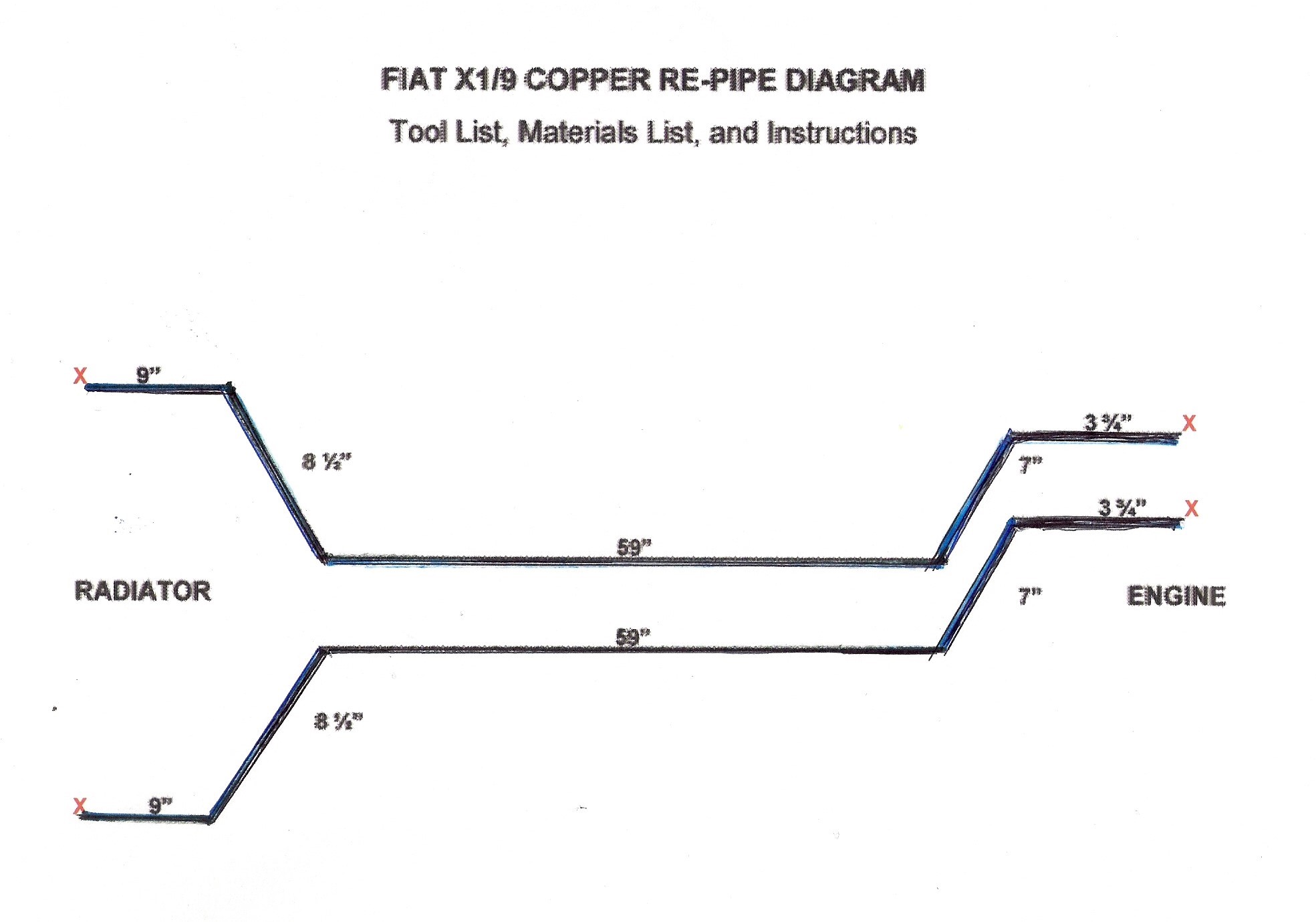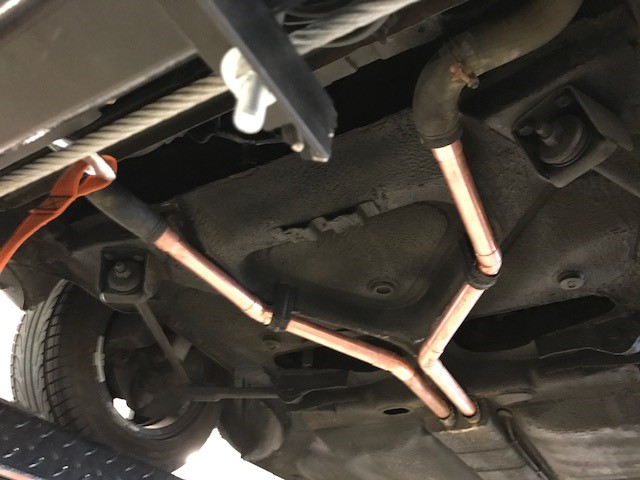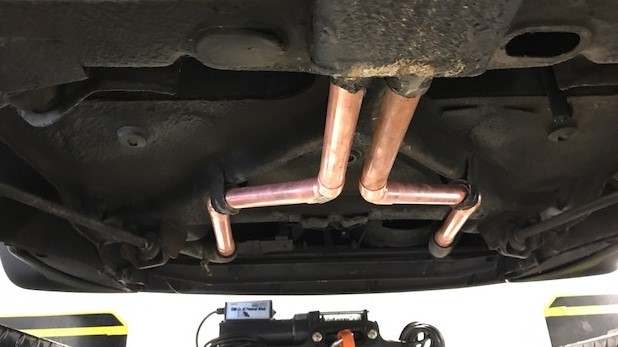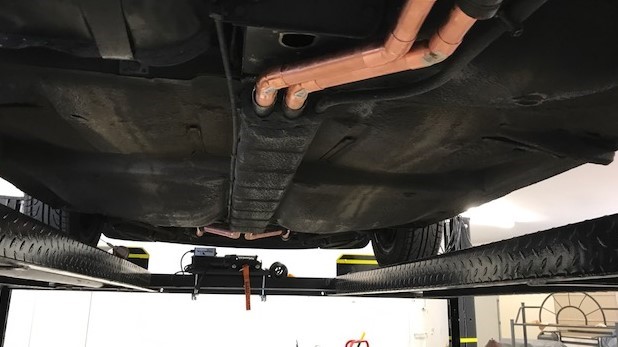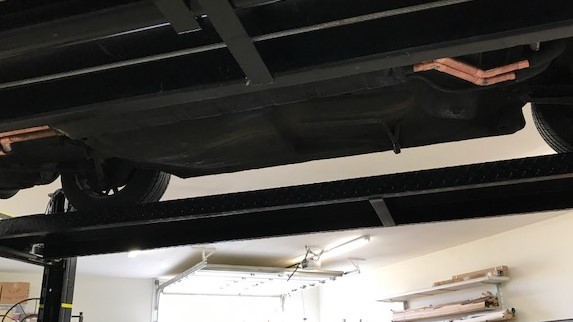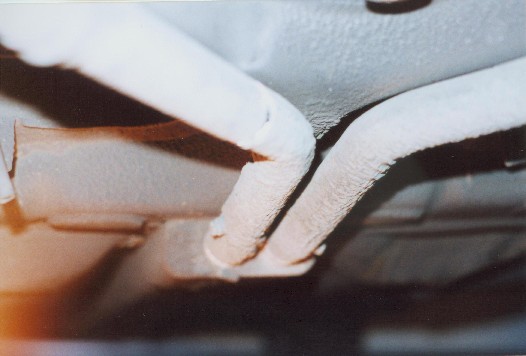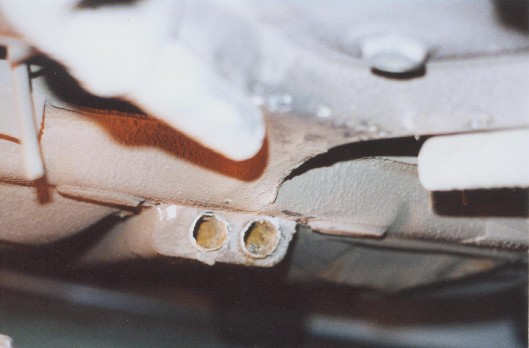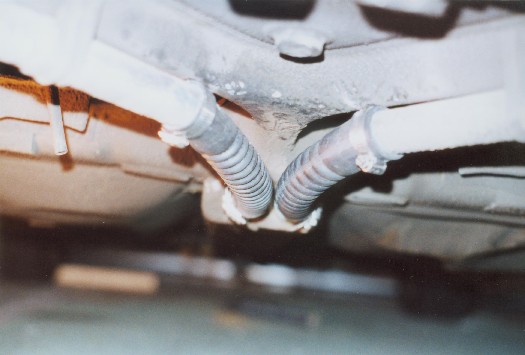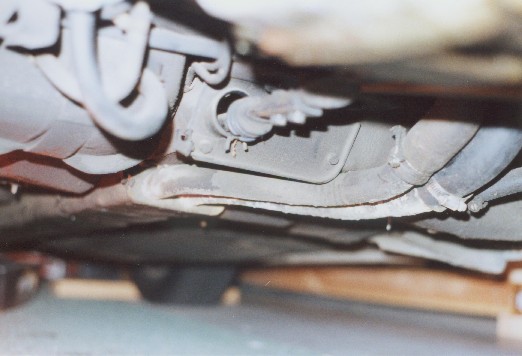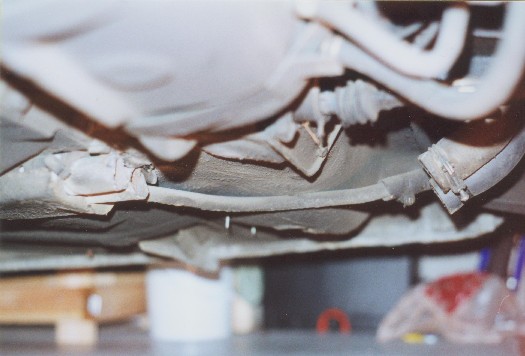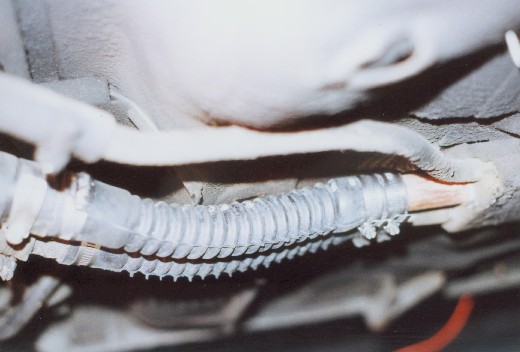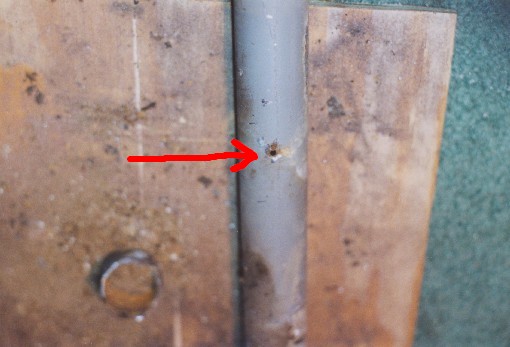CoolantPipeReplacement: Difference between revisions
Dcioccarelli (talk | contribs) No edit summary |
Dcioccarelli (talk | contribs) |
||
| Line 6: | Line 6: | ||
== Papa Tony's Solution == | == Papa Tony's Solution == | ||
[[File:CoolantPipeOverview.jpg]] | |||
[[File:FrontToBack.jpg]] | [[File:FrontToBack.jpg]] | ||
Revision as of 04:56, 14 June 2017
Coolant Pipe Replacement
As the cars get older, the issue of corroded coolant pipes becomes more prevalent. Various people have come up with various solutions to address what can be a notorously difficult repair due to the fact that the pipes are routed through the box section under the car.
This page attempts to consolidate the various methods.
Papa Tony's Solution
I don't really know who to give proper credit to for this fix - it was emailed to me from someone who saw my post on xweb. The original email was a scan of a document that looks like it was produced in the UK, entitled "Piece Pipe". Here is my version of that document - It's easy - "Beginner Level" type of stuff
-- Lake Elsinore
The Problem
corrosion to a coolant pipe inside the protective housing underneath was causing slow leakage and severe overheating.
the solution
cut the pipes and slide new ones in!
materials needed
(2) 5 ft. sections of "H" rated copper pipe 1" dia. Home Depot sells these in 10ft lengths, have them cut one in half for you (or buy the tool and do it yourself). The final length of pipe will end up around 4ft and change for proper fit.
(4) Flex hoses 1.25 diameter - to connect the 1.25 OE pipe with the 1.0 copper pipe.
(12) Hose clamps - to double clamp the copper pipe
The Front Section
after gathering the right amount of courage, i powered up the rotary tool and began slicing. i elected to cut the front section of the pipes right at the protective housing and about an inch after the angle - to be replaced with flexible radiator hoses.
The Rear Section
cutting through the rear pipes proved to be slightly challenging. since i could not cut all the way through to the top of the pipe, I grabbed the pipe and while twisting, it actually rotated inside the housing. this despite the fact that there should have been some sort of brackets holding the pipes in place (no speculation on what happened with those). this meant that the pipes could be completely removed and replaced with new pipes. i elected to leave the old pipes in place as added support and protection for the new copper pipe replacement.
good/solid sections of the old pipe that had been cut served as a connecting mechanism between the new pipe, flex hoses and hoses that lead up to the block.
total shop time: approx 5 hours
and the cause of all this work:
